Connecting Fairfax City's Past and Present to Build a More Equitable and Inclusive Future
On July 12, 2022, City Council voted to change the names of 14 streets as recommended by the Stakeholder Advisory Group. Watch the meeting.
UPDATE July 12, 2022: City Council voted to change 14 street names. Watch the meeting. If you would like to submit names for consideration, please complete the survey.
Connecting Fairfax City for All
The City of Fairfax recognizes there is strength in diversity and acknowledges the need for a broader community conversation around the issues of racial and social equity, systemic racism, symbolism, and identity.

Evolving views about who and what should be memorialized in public spaces and on public land present an opportunity for the City of Fairfax to examine its nomenclature. Confederate-related street and place names, historical markers and monuments, and elements in the city seal will be discussed in the context of how these symbols reflect the City Council’s goals of inclusivity and building community.
City residents are invited to participate in thought-provoking conversations that connect current realities with the city’s historical past. Ultimately, through a series of listening and learning opportunities, the goal is to connect the present to a more equitable and inclusive future for all city residents, businesses, and visitors.
“This initiative, endorsed by the City Council, holds great promise for our city residents to engage with each other with respect, compassion, and an openness to learning and gaining a greater understanding of each other,” said City of Fairfax Mayor David Meyer. “This is an opportunity for all of us to discern what actions we may take to create a preferred future that is inclusive and more just and equitable.”
Partnership with George Mason University
To accomplish this work, the city has partnered with the George Mason University Jimmy and Rosalynn Carter School for Peace and Conflict Resolution. Working with the Carter School, the city has outlined a process to listen to community voices, engage the community in learning sessions and structured, facilitated discussions, and will form a diverse working group to make recommendations on action items and identify areas for further community discussion. City Council will consider the recommendations in 2021 before making decisions regarding the city’s nomenclature.
Please explore this project site, drop a pin on the map, share your ideas, tell your story, or leave a comment. Click on the social media icons to share with others.

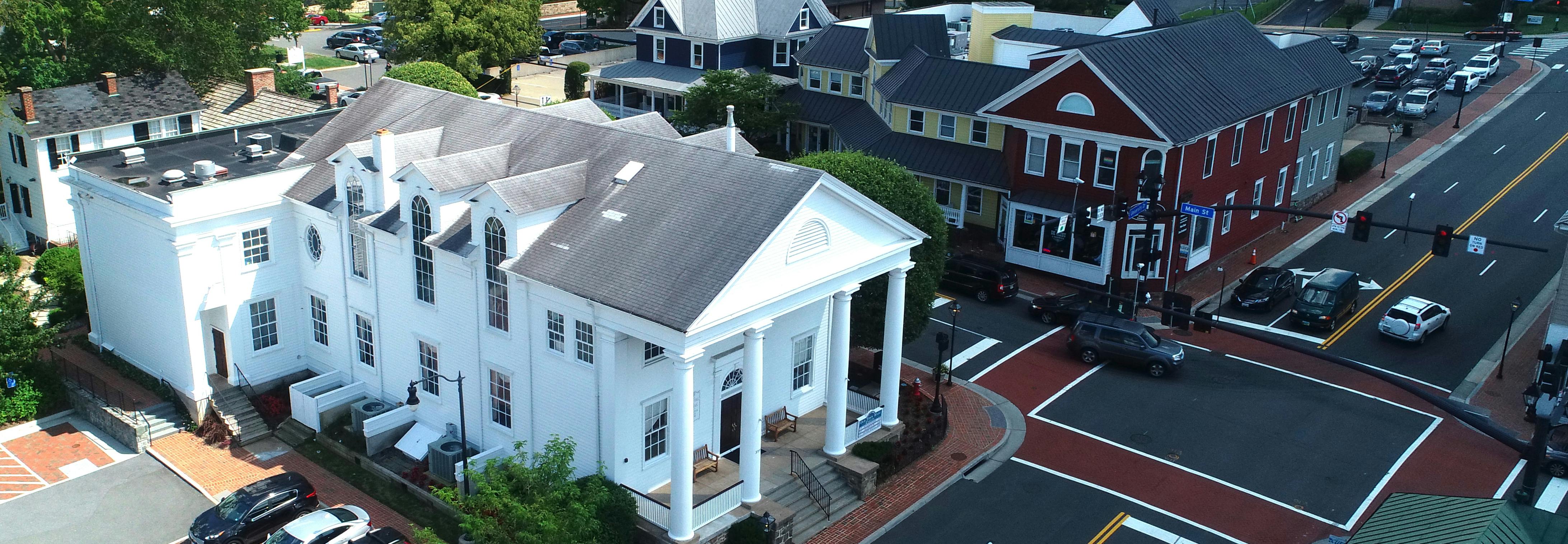









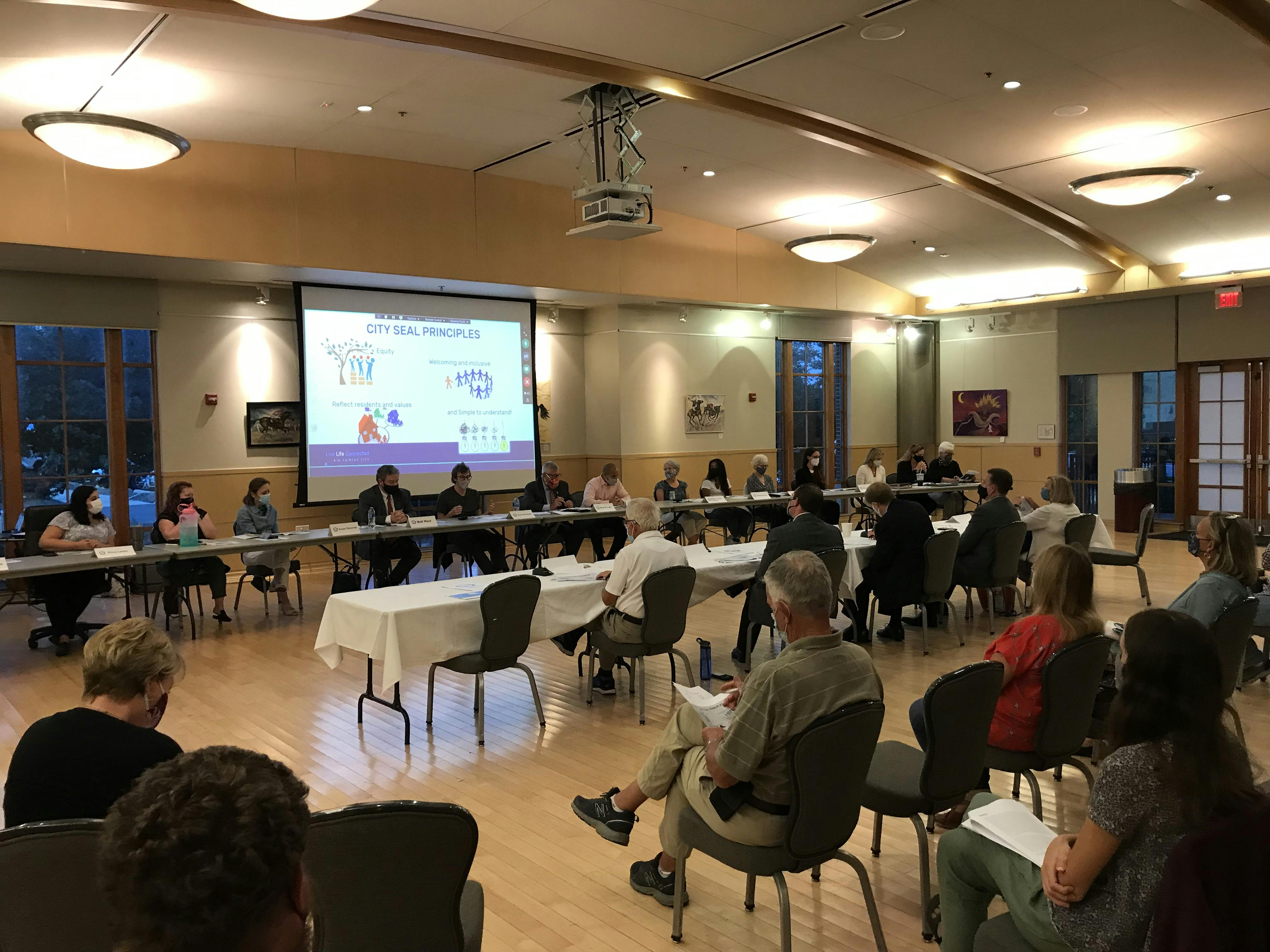
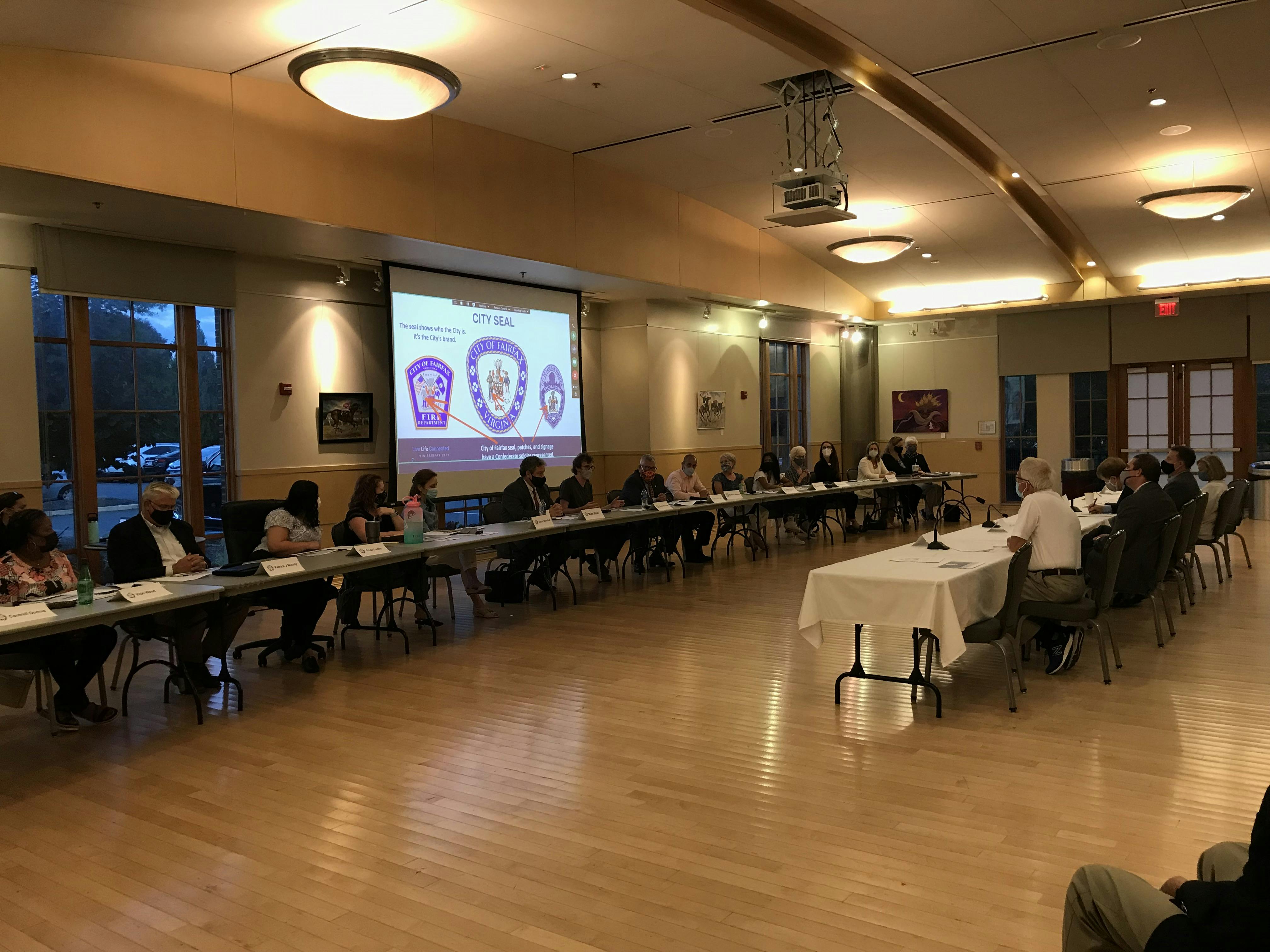
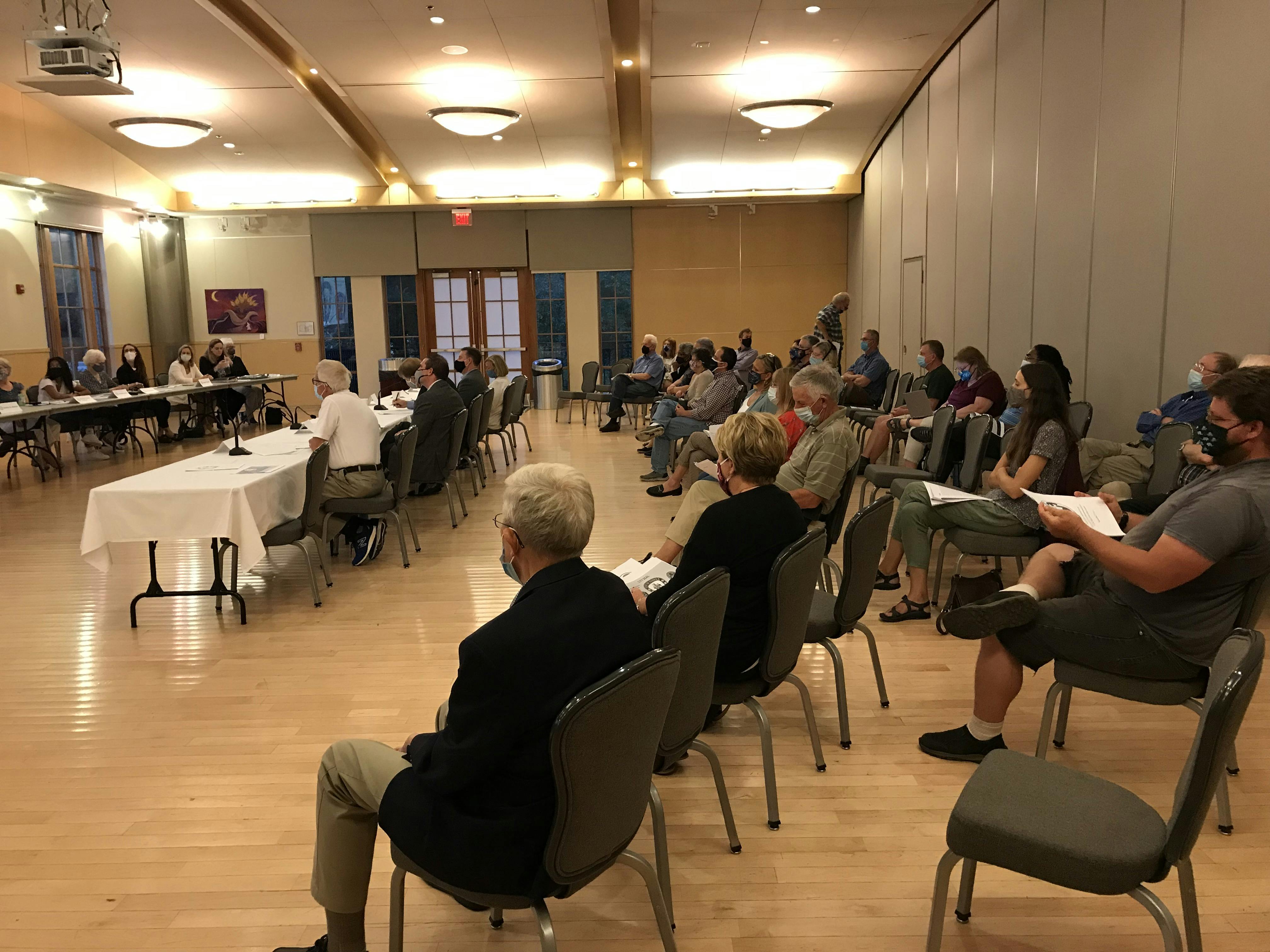
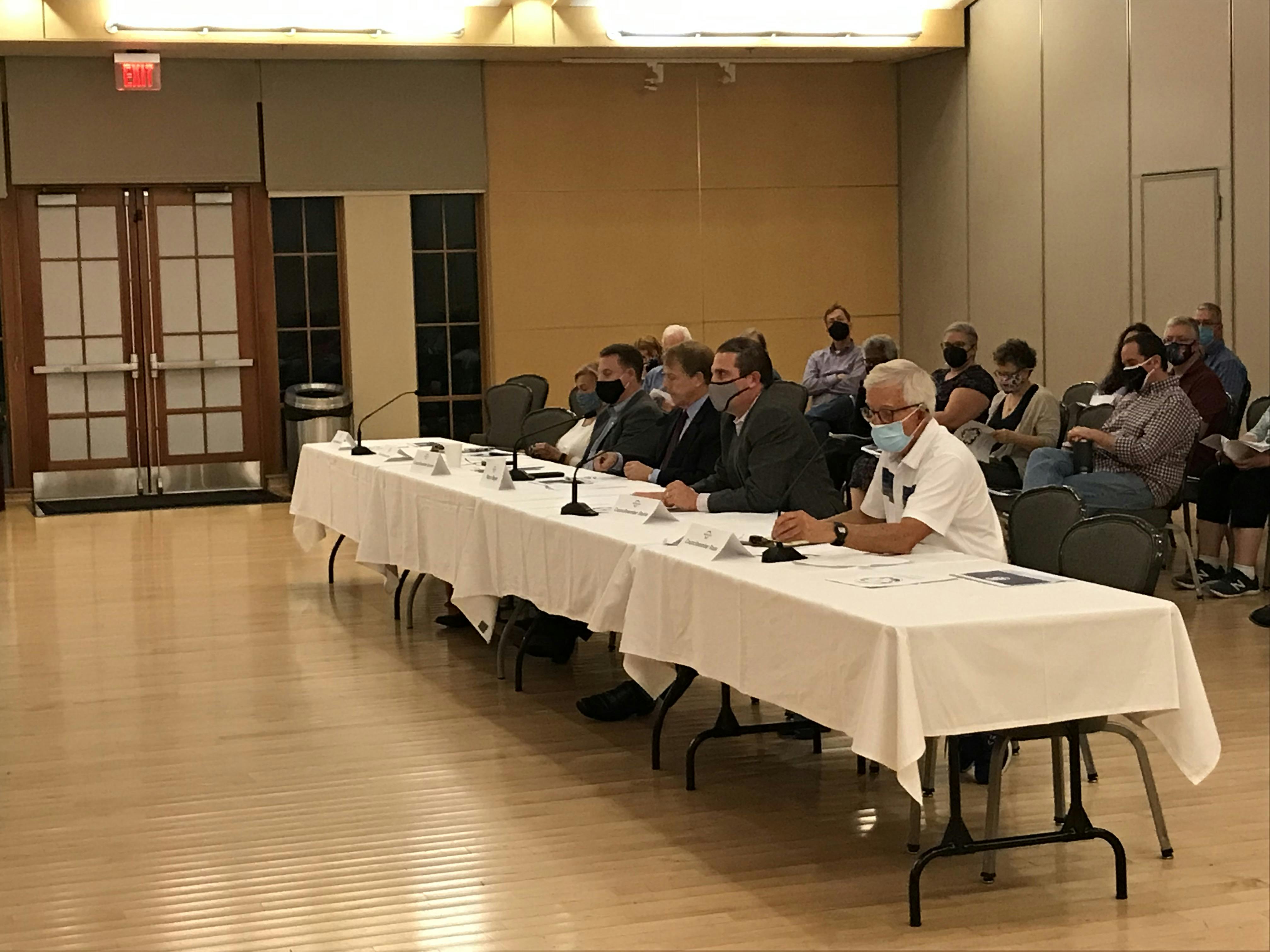
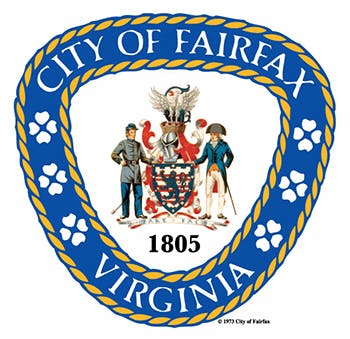

It is a sickness of our culture for generations that we have actively honored or casually shrugged these enemies of humanity. It is not even a debate. If white America were conscious it would be unified and deliberate in destroying the hero's of enslavement. It should not be done in the dark of night with after hour workers. It should be ceremonious and celebrated.
As Americans, the place from which our ancestors originated is irrelevant, as is our skin tone. What unifies us is allegiance to our founding ideals and our history. We should be much more interested in our commonality around our founding values than our "diversity." That kind of tribalization is racist and un-American, and will destroy us in the long term.
One of the instigators of renaming streets in the city is a group called Neighbors for Change from Mosby Woods where I live, They object to street names with a Civil War theme. I do not find their arguments convincing in the least. First they say “While it is important to study and understand the Civil War, this is not synonymous with honor and admiration”. I reply why not. Over a million men wore a blue coat in service to their country. Hundreds of thousands who wore blue coats died to preserve our Union and free the slaves. America wouldn’t be the country it is today without their sacrifice.
Second, the NFC folks allege that the neighborhood and its streets were named “in reaction to the growing Civil Rights Movement”. Yet they have not provided any contemporary supporting evidence. In 2012, Bob Reinsel, the MWCA president, interviewed Mr Yeonas who built Mosby Woods. Yeonas stated his son saw the historical markers at the Court House and got the idea for a Civil War themed development.
Next the NFC says the street names are “divisive and exclusionary”. I fail to see how a street named Bluecoat or Scout is divisive. I live on Traveler St, named for Lee’s horse. People are divisive or exclusionary not street names. I have been a Block Captain for almost 20 years. Anyone who moves onto my block is welcomed with baked goods and all people- black, white, brown, yellow, renter, owner, gay, straight, trans gendered, young or old, are invited and welcomed to the annual Traveler St Block Party.
Next let’s look at some of the street names that were chosen in the supposed resistance to the “growing Civil Rights Movement”. There are no streets named Lee, Jackson, Davis or Stuart. Instead we have Tecumseh and Sherman named for Union General William Tecumseh Sherman, a man who was instrumental in winning the war that freed slaves. No streets are named for Southern victories such as Bull Run, Fredericksburg, or Chancellorsville Lee’s greatest victory. Instead we have Shiloh, Antietam and Atlanta, all Union victories. Atlanta secured Lincoln’s re-election in 1864. Antietam allowed Lincoln to issue the Emancipation Proclamation freeing the slaves. What better name for a street is there?
NFC seem to think we should erase the Civil War heritage of this area. You can’t do it. This is not Ohio or Iowa. This land was fought over for four years. You can’t throw a stone in Virginia without hitting a historical marker. Virginia has the 42 battlefields, the most of any state in the Union.
I am willing to concede that four street names should be changed to wit: Confederate Lane, Reb Street, Plantation Parkway and Singleton Circle (Mosby’s middle name.) Traveler Street should stay because it is named for a horse.
Finally let me say I am a Yankee board and bred. I grew up so far north in Michigan I could see Canada from my bedroom window. I am not a defender of the Lost Cause mythology but the non-Confederate names should stay.
Five homes have recently been sold on Plantation Parkway, two for over $700,000, which I believe is a first for Mosby Woods.
One of my questions has always been this: does the name of your city, neighborhood or street define how you treat other human beings?
Old Lee Highway Multimodal Improvement must be on HOLD until Engage Fairfax rename shareholders can assign something like "3N way" to it (New No Name way).
To form a judgment on the proposal to change street names, I think we need to go beyond merely a call for change. We need to think clearly about what we would be changing the street names to. In most posts, the merits of change vs. the status quo are debated, but we rarely see a concrete proposal for what the new street names should be. What theme(s) do proponents of change suggest as a replacement for the Confederate theme? If we do not like Plantation Parkway, what should the street's new name be? I saw one suggestion in these posts that it should be called Emancipation Parkway. Is that the only choice - Plantation or Emancipation? Does substituting one historical marker for another historical marker constitute the range of our options? I would submit that history or politics might not be the best domains from which to choose street names, if we want them to be sustainable over time. How about art, science, literature, nature, etc. - some theme that is not divisive in itself? Let's have a more robust debate about what we would like to change to, and go beyond arguing about what we want to change from.
As residents, neighbors, community members, and as a society we name places the way we do to assign the values they represent a sense of permanence. We name streets, monuments, and neighborhoods hoping these names will outlive us, and hoping the values they convey will successfully pass down to our children’s and grandchildren’s generations.
When those values are misplaced, however, the permanence of names must change.
I’m certain that none of the residents and designers and city administrators of Fairfax ever said to themselves, “Let’s memorialize the values of fighting against the United States”; they probably intended to convey valor, honor, stalwartness, or some other admirable value. Yet by choosing the people and symbols they did in a misinformed and exclusionary way, they inadvertently highlighted some of the basest and most inappropriate values instead. Not all of these poor choices involve names of Confederate officers who actually did the fighting, either. In one Fairfax neighborhood, there is a street named for Gen. Robert E. Lee’s horse...an odd choice of symbol at best, yet one nonetheless designed to convey specific values: namely, those associated with its owner. Another is named after a symbol of the antebellum South: a large farm...a “plantation.” To some privileged folks at the time when this symbol was chosen as a street name, this might have evoked images of mint juleps and close-knit families - yet to others, of course, a Southern plantation remains a horrific symbol of the worst crimes ever perpetuated by humankind against itself.
Is there an opening in our great City’s future to name our streets and places after truly heroic people and symbols? Memorializing the right values is indeed honorable and timeless. Can we transition to a Douglass Street, an Emancipation Parkway, or a Unity Woods of which we will, all of us, be proud to point out to our great grandchildren as emblematic of the neighborhoods of our Fairfax?
I urge the City and its Council to consider the great benefits of choosing the best symbols and people to represent the values we can all respect and be proud of.
Most Confederate monuments/namings/etc. are not the product of the Civil War era, but instead of the civil rights era -- an attempt by segregationists to stake their claim in a backlash against integration. In a modern, diverse City of Fairfax, those attitudes have no place. They valorize slaveholders and those who fought to keep human beings as chattel based on the color of their skin, but they also memorialize those who fought against progress in the 1960s. Is that something we want to promote as a city? I certainly don't.
If the many publicized police killings of black people (including Natasha McKenna here in Fairfax) was somehow not enough to show that this country must change, the January 6th insurrection should prove that white supremacy is alive and well here. Let's send a signal that it's not welcome in the City of Fairfax.
Confederate monuments should be archived and confederate nomenclature should be changed. History can be remembered and studied without being honored, and this history deserves our strongest condemnation, not our veneration.
Lastly, the idea of listening to "both sides" legitimizes confederate apologists and white supremacists. It's no fair and equitable process that provides a platform for those who think that some of the other commenters are subhuman and should be eradicated. This perpetuates harm against individuals and communities of color.
You already know what is right to do. Just do it.
"History is not there for you to like or dislike. It is there for you to learn from it. And if it offends you, even better. Because then you are less likely to repeat it. It's not yours to erase. It belongs to all of us." (Author unknown)
My family has roots in the New England and in Russia. We recently moved to Fairfax City, and were immediately struck by the many references to the Civil War, such as "Rebel Run" and "Plantation Parkway" not to mention Lee Hgwy, Old Lee Hgwy, Leesville... Given our painful history in which slavery figures large, these names did not seem appropriate nor balanced to us for street names; we were glad that one of those roads has already been renamed. However, we were stunned to see the small obelisk removed from the corner of 123 and Main St. I had read the inscription on the obelisk that documented the first death of the Civil War. It was a somber reminder of all the pain our country has endured and continues to endure. That small obelisk marked an important even that occurred in Fairfax City. I understand that it was a County decision, but I believe that that obelisk should be returned to Fairfax City, perhaps relocated to its history museum and supplemented by information about slavery for proper context. I wish the City and this special committee wisdom as they grapple with which symbols should be let go, and which history markers should remain.
After the events in Washington DC of January 6, 2021 we must acknowledge that "Confederate Iconography" is no longer just a discussion of heritage or history. It is the symbolism actively displayed by those seeking to overthrow the government of the United States. The Confederate flag, and all that it conveys, once was seen as the symbol of a past insurrection. It is now unmistakably waved to energize a very real attack on our country in 2021.
Race
Take a lesson from the racist propagandists, relegate the R word to where they have put the N word.
Social equity in this diverse city needs to be the rule.
If 94% of City residents in the 2018 census identify as NON-BLACK. Why is the City supporting an effort by George Mason University to educate its residents on it’s roots in the Confederacy, Slavery and the denigration or segregation of blacks.
With the various hues of skin color in this city we are being conditioned to have the euphemism of race apply to some group of Americans decended, immigrated and some imported from Africa.
If we allow racial equity to apply to blacks are we then to use language as a discriminator for Hispanics and Aisans?
We must improve the social equity for our city residents by providing services impartial to the shape, size or color of skin!
I have said for sometime now that if not blighted by lack of reverence for the facts, history becomes a great teacher as it lays hindsight before us in this journey thru life and we need to heed it. The afore-mentioned confederate-related items have ceased to memorialize as that time has past. They now serve as historical reminders of America's past whether it be good or bad. They also serve to gauge society's progress and it indicates there is much to do. This time and money must go toward the eradication of racial disparity not the reminders of our history. Our history is our history, for better or worse, we become better and stronger by learning not by erasing it. Education is tantamount for this effort to be successful and it should have began 150 years ago; but look at the woefully inadequate schools that exist today particularly in the black communities. Fairfax city needs to become a leader and insure that each and every child within it's boundary regardless of race, color, creed, or social status receives a proper education. Also education needs to be another topic of discussion.
We select street names to indicate what is important to us, what we value, what we want to be. Street names that honor the Confederacy honor people who left our country and fought to maintain ownership of other humans (see the Cornerstone Speech). Those are values we no longer share, and we should not honor those people. Changing street names will not erase history but rather will show what our city values. And while I agree there are many important issues to address, this topic deserves our attention.
The action of naming a street after an individual, group or cause, or erecting a monument to such an individual, group or cause, does not constitute an objective, correct, or compassionate representation of history. On the contrary, it distorts and counteracts any attempt at compassion in representing our history. It should go without saying that, generally speaking, a street or monument named after an individual constitutes an informed, conscious decision to honor that individual and what they stood for. In choosing to pass up an opportunity to correct that mistake, one effectively makes that same decision to glorify those who fought against efforts to abolish slavery, and therefore to glorify slavery itself. Anyone with a basic, middle school understanding of U.S. history should know that names such as Lee and Pickett primarily stood for the Confederacy, and therefore for slavery. History is learned in classrooms and museums, not from racist statues.
I want to acknowledge people who bring concerns about erasing history, but monuments that convey no historical information and serve only to glorify the undemocratic institution of slavery ought to go. Lee Jackson highway serves as a monument, but unlike historical markers that convey information about actual events, Lee-Jackson Highway servers no such purpose other than glorifying individuals who tried to uphold undemocratic institutions. I advocate changing the names of Lee Jackson Highway and Old Lee Highway. We will erase no history by doing so. Slavery and the Civil War left indelible marks on this country and our students will inevitably learn about the players in the Civil War like Lee and Jackson who tried unsuccessfully to defend slavery, and institutions that are completely incompatible with democracy. By removing Lee and Jackson we will express our democratic values by ceasing to honour those who attempted to uphold undemocratic and immoral systems.
I hear a lot of people trying to shut down debate by claiming conversations about street names and historic markers are trying to erase history, on the contrary. There is not enough historical context to historical markers and statues in Southern cities. We need to look at our civil war plaques and markers and ask why were they put there? When? And who paid for them? And why? Were our statues markers and monuments approved by former city council members who belonged to the KKK and other genocidal Southern organisations. There are some markers in this city that do provide historical information about when and where civil war events happened but if they are in any way connected to genocidal post-reconstruction movements that terrorised our country’s Black population we need to know about it acknowledge and make it known.
I have to agree with below comments. While i appreciate trying to take initiative to change things, this may not be the best topic that needs change. What Americans need to remember is our history is our history. That's what has made us a great nation. We have made many mistakes but through the years have learned from them. Those who want to "erase" it all and pretend it never happened are just kidding themselves. Can we remember that back in history this was the everyday norm. I''m not saying by any means it was right but also, this was the normal practice back then. Any also, please remember too that many a slave owner treated them with kindness and even gave them property when the Civil War was over. You can't turn a blind eye and just say everyone was evil and wrong. Can we take a look at Brazil. They imported almost double the amount of slave that the United States did. How about Belgium? They took a whole country's land and wiped out their population. Let's learn from past mistakes and work towards a better future so we are doomed to repeat past mistakes.
This project seems unnecessary. There is no groundswell of interest in it. And, it will stir up controversy where none exists, something we do not need in these difficult times. Nevertheless, if it proceeds, I offer the following:
First Principles
All the citizens of Fairfax must have their say on any City-wide proposal. This means that any proposal to remove or change historical markers or other things such as the City seal should be put up to a referendum.
Any changes affecting a small part of the City such as a street name should be initiated by and voted on by the residents of that street.
The cemetery should be off limits. Brave soldiers are buried there and they did their duty and died as they saw their duty in the context of their times. Let them rest in peace.
First Tasks
There are two big elephants in the room that should be addressed. The first should be to rename George Mason University. George Mason, after whom the university is named, owned about 300 slaves.
The second task should be to consider changing the name of the City of Fairfax. The City was named after Thomas Fairfax, 6th Lord Fairfax of Cameron, who not only owned slaves but also engaged in the slave trade. The name "Providence" will do.
Removed by moderator.